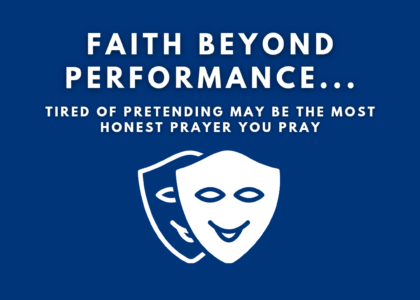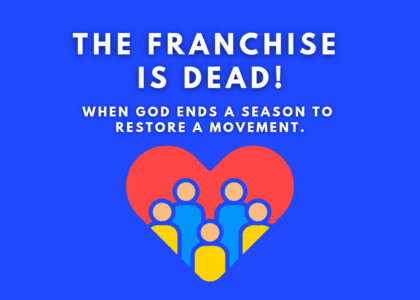There is a quiet but defining divide rising within the Church today. It’s not about theological camps or worship styles. It is far more subtle—and far more dangerous.
The real question is this: Will we be a prophetic Church or a political one?
The Prophetic Church: A House of Release
A prophetic church recognizes the divine fingerprints God has placed on His people. It discerns grace, calls it out, and creates pathways for gifts to flourish. Like Paul told Timothy, “Fan into flame the gift of God which is in you” (2 Timothy 1:6 NIV). Prophetic leadership ignites fire; it does not manage sparks.
The prophetic spirit doesn’t fear diversity of gifting—it celebrates it. It believes that the body is healthiest when every member is functioning. Apostles build, prophets reveal, evangelists awaken, pastors heal, teachers establish (Ephesians 4:11–12). The prophetic church makes room at the table for all five.
The Political Church: A House of Management
In contrast, a political church is obsessed with control. Its language sounds spiritual, but its spirit is corporate. Words like “alignment,” “submission,” and “structure” become tools not of discipleship but of containment.
It introduces layers of approval, not for accountability, but for containment. Instead of saying, “How can we help you flow in your calling?” it whispers, “How do we make sure this doesn’t disrupt our system?” The Pharisees operated in this same spirit—protecting the system even when the Messiah stood before them.
Jesus confronted this spirit head-on. “You shut the door of the kingdom of heaven in people’s faces” (Matthew 23:13). That’s what political spirits do—they don’t openly persecute; they quietly shut doors.
The Illusion of Order: Structure vs. Control
Yes, Scripture calls for order in the house of God (1 Corinthians 14:40). But order is not the same as control. Order serves people. Control uses people to serve the system.
- Structure that empowers = Kingdom.
- Structure that suffocates = Politics.
We must ask ourselves:
- Are our policies protecting the individual or preserving the institution?
- When a young leader rises, do we mentor or manage him?
- When a new prophetic voice emerges, do we test and train—or do we silence until further notice?
Freedom with Boundaries: Like a Shepherd with His Flock
Prophetic freedom is not chaos. It is Spirit-led flow within shepherd-led boundaries.
Think of a shepherd in ancient Israel. He allowed the sheep to roam the pastures—to explore, graze, grow strong—but when night fell or danger approached, he gathered them back. Freedom with recall. Release with return. That is kingdom order.
Paul did not silence the Corinthians for misusing spiritual gifts. He corrected the excess but never cancelled the expression. That is the difference between prophetic fatherhood and political control.
Control: The Spirit Jesus Confronted
The first deliverance Jesus performed in Mark 1 was not in the streets—it was in the synagogue (Mark 1:23). The demonic spirit was comfortable in a controlled religious environment but tormented when confronted by freedom.
Control is not just a leadership style. It is a spiritual atmosphere.
When leaders cling to control, they unknowingly partner with the same spirit Jesus came to cast out. Political systems fear disruption. Prophetic leadership fears only quenching the Spirit (1 Thessalonians 5:19).
A Prophetic Call to Leaders
This is not a call to rebellion. It is a call to prophetic fathering. The Church does not need more managers of ministry. It needs midwives of destiny—leaders who know when to guide and when to release.
- Midwives don’t own the baby—they simply help it be born.
- Fathers don’t compete with their sons—they launch them further.
- Prophetic leaders don’t fear new voices—they make room for them.
So, What Kind of House Are We Building?
Let this confronting question rest in our spirits:
Are we more concerned with preserving what we’ve built or releasing what God wants to birth?
Every leader—whether in a pulpit or a small home group—must decide:
- Will I nurture or negotiate the gifts in others?
- Will I steward or suppress?
- Will I raise sons and daughters or maintain employees and volunteers?
Lord, Make Us a Prophetic House
May we echo Moses’ cry: “I wish that all the Lord’s people were prophets and that the Lord would put his Spirit on them!” (Numbers 11:29). That is the heart of prophetic leadership—not to be the only one who hears God, but to ensure everyone hears Him clearly.





